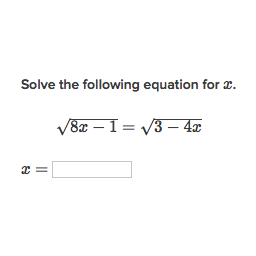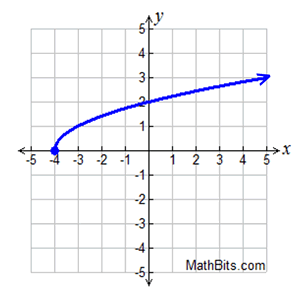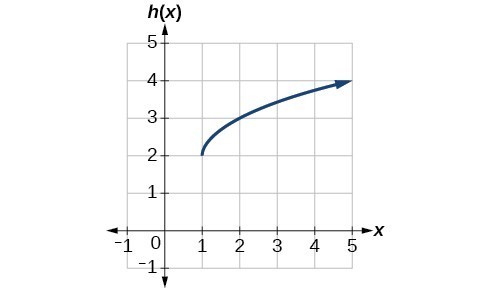Does this equation represent direct variation, inverse variation, or neither:
xy = 3
Inverse!
When converting between rational and radical form, you should remember ________ over _______!
Power over root
What would the first step be in solving this equation?
![]()
Subtract 1 from both sides
What are the intercepts for the original square root function?
(x and y intercepts)
(0,0)
Jim's wages vary directly with the number of hours he works. Last week he got paid $27 for 5 hours of work. How much will he get paid for 30 hours of work?
$162
Does the following represent direct variation, inverse variation, or neither:

Direct!
1,2
Solve for x:
![]()
x = 64
What is the domain and range for the original square root function?
D: x > 0, y > 0
The number of kilograms of water in a person's body varies directly with the person's mass. A person with a mass of 90 kg contains 60 kg of water. How many kilograms of water are in a person with a mass of 50k g?
33.3 kg
Given that y varies directly with x and y = -4 when x = 2, find y when x = -6.
y = 12
Write in radical form:
(6x)3/4
Fourth root of (6x)3
Solve the following for x:

x = 1/3
Write the equation for this graph:

sqrt(x+4)
The time it takes to fly from Los Angeles to New York varies inversely as the speed of the plane. If the trip takes 6 hours at 900 km/h, how long would it take at 800 km/h?
6.75 hours or 6 hours, 45 min
If x varies inverse as y, and x = 7 when y = 3, find y when x = 9.
21/9 , 7/3, or 2.3333
Write in rational form:
![]()
x5/4
Solve the following:
√(2x+9) − 5 = 0
x = 8
Write the equation for the following graph:

y = sqrt(x-1) + 2
On a string instrument, the square of the length of a string varies inversely as the frequency of its vibrations. A 10 inch string has a frequency of 400 cycles per second. Find the constant of proportionality.
40,000
If a varies inversely as square root of b, and a = 7 when b = 36, find a when b = 289.
42/17 or 2.47
Conver to radical form:
6x-4/2
1/ sqrt(6x4)
Solve for x:
![]()
x = -6, x = -1
State the domain and range for this graph:

D: (1, infinity) R: (2, infinity)
On a string instrument, the square of the length of a string varies inversely as the frequency of its vibrations. A 10 inch string has a frequency of 400 cycles per second. Find the frequency of a 15 inch string.
177.8 cycles per second